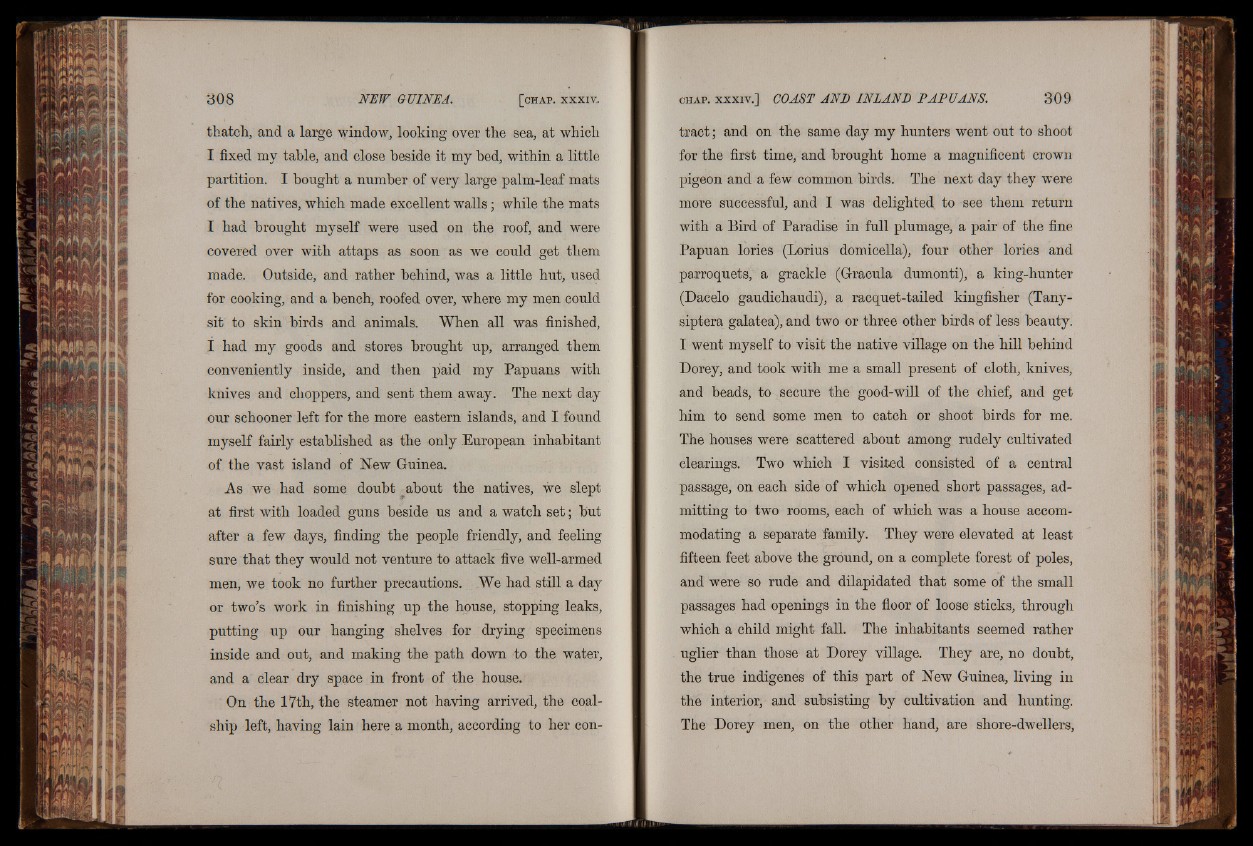
thatch, and a large window, looking over the sea, at which
I fixed my table, and close beside it my bed, within a little
partition. I bought a number of very large palm-leaf mats
of the natives, which made excellent walls ; while the mats
I had brought myself were used on the roof, and were
covered over with attaps as soon as we could get them
made. Outside, and rather behind, was a little hut, used
for cooking, and a bench, roofed over, where my men could
sit to skin birds and animals. When all was finished,
I had my goods and stores brought up, arranged them
conveniently inside, and then paid my Papuans with
knives and choppers, and sent them away. The next day
our schooner left for the more eastern islands, and I found
myself fairly established as the only European inhabitant
of the vast island of New Guinea.
As we had some doubt ^about the natives, we slept
at first with loaded guns beside us and a watch set ; but
after a few days, finding the people friendly, and feeling
sure that they would not venture to attack five well-armed
men, we took no further precautions. We had still a day
or two’s work in finishing up the house, stopping leaks,
putting up our hanging shelves for drying specimens
inside and out, and making the path down to the water,
and a clear dry space in front of the house.
On the 17th, the steamer not having arrived, the coal-
ship left, having lain here a month, according to her contract;
and on the same day my hunters went out to shoot
for the first time, and brought home a magnificent crown
pigeon and a few common birds. The next day they were
more successful, and I was delighted to see them return
with a Bird of Paradise in full plumage, a pair of the fine
Papuan lories (Lorius domicella), four other lories and
parroquets, a grackle (Gracula dumonti), a king-hunter
(Dacelo gaudichaudi), a racquet-tailed kingfisher (Tany-
siptera galatea), and two or three other birds of less beauty.
I went myself to visit the native village on the hill behind
Dorey, and took with me a small present of cloth, knives,
and beads, to secure the good-will of the chief, and get
him to send some men to catch or shoot birds for me.
The houses were scattered about among rudely cultivated
elearings. Two which I visited consisted of a central
passage, on each side of which opened short passages, admitting
to two rooms, each of which was a house accommodating
a separate family. They were elevated at least
fifteen feet above the ground, on a complete forest of poles,
and were so rude and dilapidated that some of the small
passages had openings in the floor of loose sticks, through
which a child might fall. The inhabitants seemed rather
uglier than those at Dorey village. They are, no doubt,
the true indigenes of this part of New Guinea, living in
the interior, and subsisting by cultivation and hunting.
The Dorey men, on the other hand, are shore-dwellers,